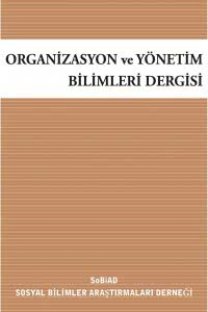YÜKSEKÖĞRETİM ÖĞRENCİLERİNİN VERGİYE YÖNELİK ALGILARININ ÇEŞİTLİ DEĞİŞKENLER AÇISINDAN İNCELENMESİ: ÇANAKKALE ONSEKİZ MART ÜNİVERSİTESİ ÖRNEĞİ
Bireylerin içsel ve dışsal uyarıcıların neden olduğu, zihinlerinde vergiye ilişkin meydana gelen yargılar vergi algısı olarak tanımlanmaktadır. Bireylerin vergi olgusuna yönelik algılarını etkileyen faktörler, bireysel faktörler ve çevresel faktörler olmak üzere iki grupta incelenebilmektedir. İnsanların vergiye karşı tutum ve davranışlarında meydana gelen değişmelere etki eden bireysel ve çevresel faktörlerin olumlu tutum ve davranış geliştirmeye yönelik olması, kamunun en önemli gelir kaynağı olan vergilerden daha fazla verim elde edilerek ekonomi politikası hedeflerine ulaşmasını kolaylaştırmaktadır. Bu çalışmada; yükseköğretim öğrencilerinin vergiyi algılama ve vergi bilinç düzeylerinin belirlenerek ülkemizde vergi bilinci konusunda yapılan ampirik araştırmalara katkı sağlamak amacıyla, güvenilirliği test edilmiş 500 adet tesadüfî örnekleme metodu ile Çanakkale Onsekiz Mart Üniversitesi öğrencileri üzerinde uygulanan anket çalışmasından edinilen veriler, SPSS v.22,0 istatistik paket programı ile Sıklık, KiKare, Mann Whitney U, Kruskal- Wallis analiz testlerine tabi tutulmuş ve elde edilen sonuçlar teorik bilgilerle birlikte ele alınıp değerlendirilmiştir
Anahtar Kelimeler:
Vergi Uyumu, Vergi Psikolojisi, Vergi Algısı, Vergi Bilinci
Investigation of the Perceptions of Higher Education Students towards Tax Concept in terms of Various Variables
The perceptions that emerge in the individuals’ minds regarding taxes, caused by internal and external stimuli are called the tax perception. The factors that influence the perception of individuals regarding the tax concept can be reviewed in two categories which are personal factors and the environmental factors. Developing positive attitudes and behaviours through personal and environmental factors that have an impact on changes in the attitudes and behaviours of people regarding the taxes makes it easier for governments to achieve their financial objectives by acquiring more efficiency with the taxes which are the most important source of income for the state. In this study, in order to provide a contribution to the empirical research conducted about tax consciousness by determining the way higher education students perceive the taxes and their consciousness level towards the taxes in our country, the data derived from 500 surveys which were applied on the students of Çanakkale Onsekiz Mart University through random sampling method and reliability of which were tested, was then tested in Frequency, Chi-Square, Mann Whitney U, Kruskal-Wallis analyses via SPSS v.22,0 package program and results attained were reviewed having been taken into the consideration together with the theoretical knowledge.
Keywords:
Tax Compliance, Tax Psychology, Tax Percaption, Tax Awareness,
- ISSN: 1309-8039
- Başlangıç: 2009
- Yayıncı: Sosyal Bilimler Araştırmaları Derneği
